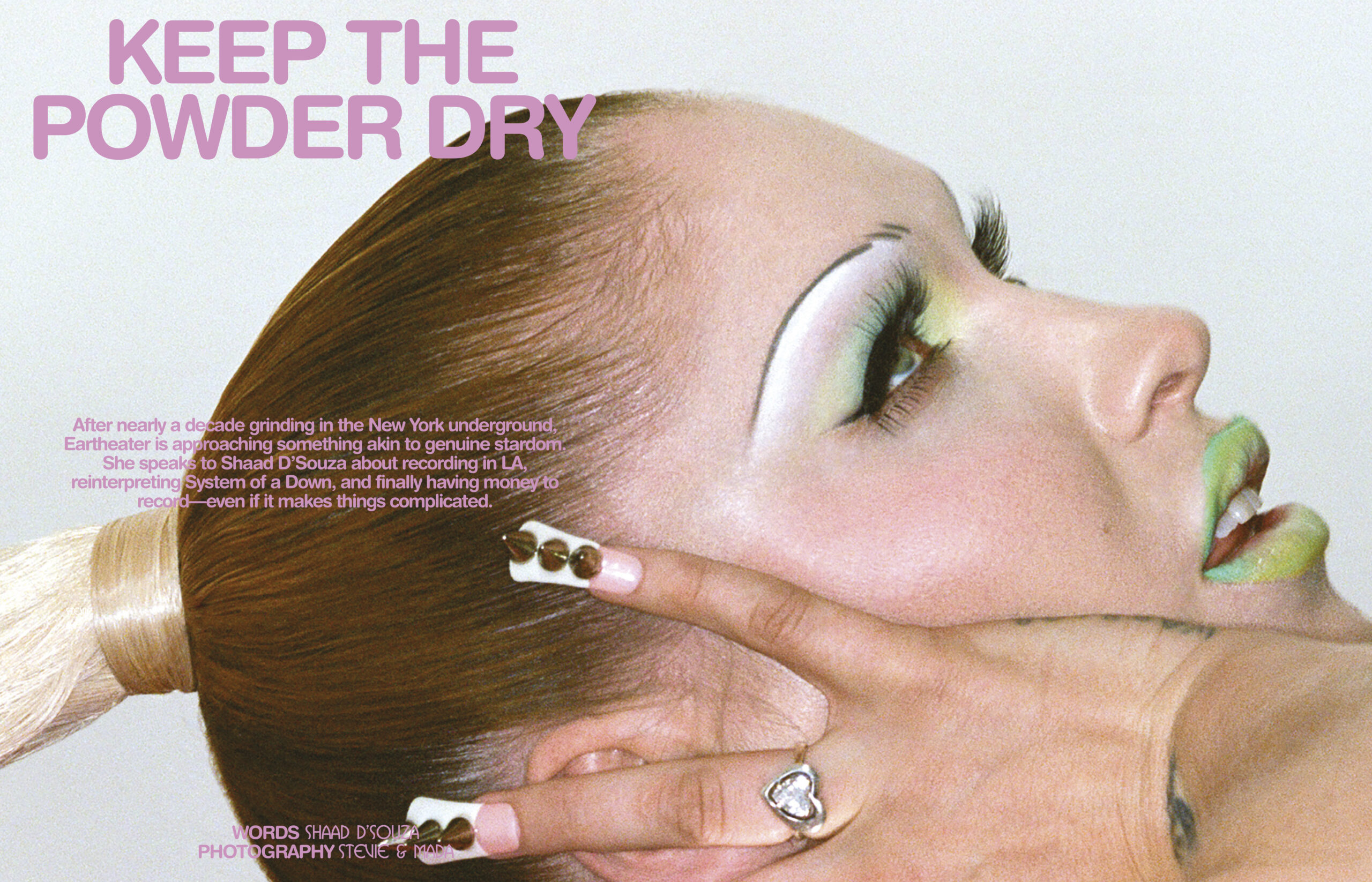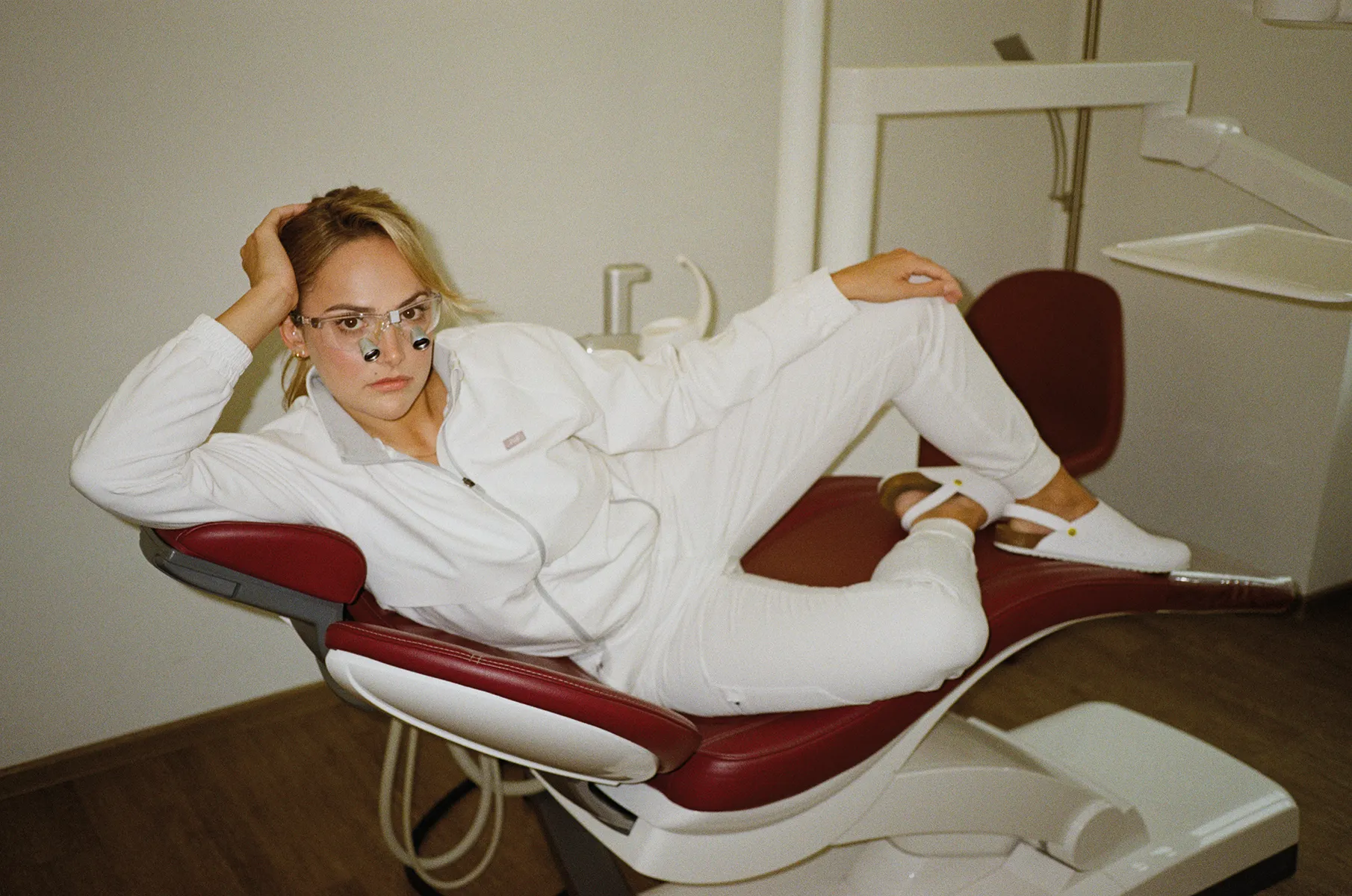After nearly a decade grinding in the New York underground, Eartheater is approaching something akin to genuine stardom. She speaks to Shaad D’Souza about recording in LA, reinterpreting System of a Down, and finally having money to record—even if it makes things complicated.
For as long as Eartheater has been making music under that name—around eight years, give or take—she’s been talking about her music as a process of crushing and grinding. Not in the Chainsmokersesque fuck-it-bro-let’s-hustle sense, but in a tactile, generative sense: in her earliest interviews, Eartheater talked about how, for her, pieces of music were like hunks of debris, ready to be mashed into silt that could then be reformed into sculptures.
Powders, Eartheater’s lucent fifth album, takes its name from that idea: that everything, whether it’s love, heartbreak or personal history, can be crushed into dust, ready to become something new. It’s an abstracted memoir—one song, a cover of System of a Down’s ‘Chop Suey,’ is a track she’s had in her arsenal since she was a teenager; another, ‘Salt of the Earth,’ features her mother and brother playing violin and guitar, respectively. Many songs, including the intoxicating, romantic highlight ‘Crushing,’ draw on pure folk music, in a way she has rarely done since her 2015 debut album Metalepsis. It is a remarkable vindication of the cult success that her albums Trinity and Phoenix have found over the past few years, and—forgive the cliché—the kind of record that could expunge the ‘cult’ marker from that status.
When I Zoom Eartheater on a Wednesday afternoon in August—around midday in New York, where she lives—she’s still awake after spending the night in the studio, attempting to break a glass with only the power of her voice. Lying down on her studio couch, cocooned in a blanket, she tells me about the world of Powders and its relationship to its follow-up album, Aftermath, set to be released in 2024.
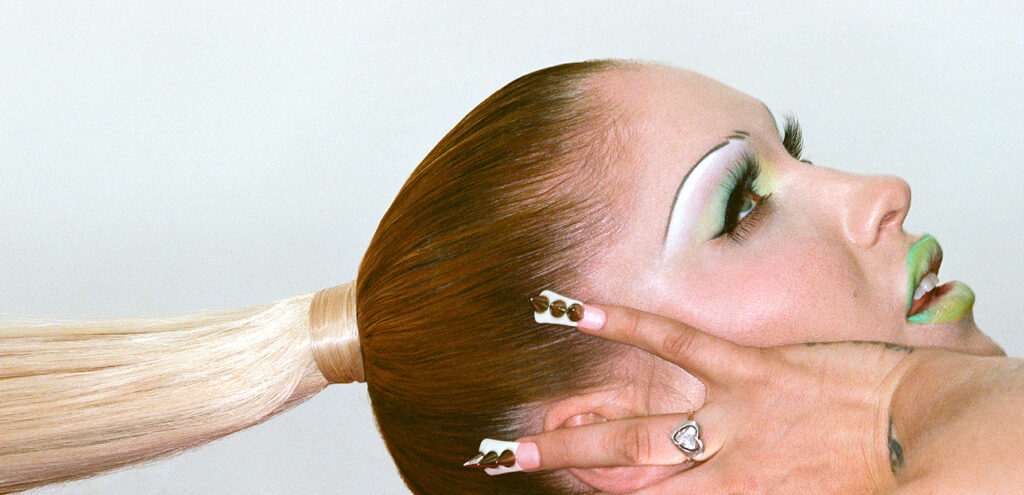
Ring EARTHEATER’S OWN
SHAAD D’SOUZA:
You call Powders your LA album, which I guess on its face could mean anything to anyone—luxury, glamour, opulence, but also loneliness, disconnection, precarity. When you call it an ‘LA album,’ what do you mean?
EARTHEATER:
I just recorded a lot of it there and that’s where I was really putting the pieces together. So the energy just permeates. It definitely felt different. I was asking myself—‘Do I even talk about this in my press release? Do I even make this a thing?’ But the fact is, it really is. When I was crunching and crushing and sort of grinding into this world of Powders, I was in LA, I was in those studios. It’s not like I set out to do anything there or I’m like, responding to anything that has happened there. Really, it just is what it is.
Music just sort of happens; people kept telling me, ‘Wow, this sounds so LA.’ In some ways, it’s a little annoying, because I’m like, well, these are genuine emotions and memories that I’m excavating from my romantic narratives that I entertained as a child. I was sort of time travelling in my mind a lot, even though I happened to be sat in Sunset Sound in LA. Then the song would come out and then people would be like, ‘This is such an LA sound.’ Meanwhile, I’ll be like ‘No, I was in Pennsylvania, Dyberry Creek, or in the haystack, or at the Wayne County Fair.’ Maybe that is actually LA, because Hollywood, movies, period pieces, movie magic, imagination, things coming to life—I guess maybe that is what it is, you know?
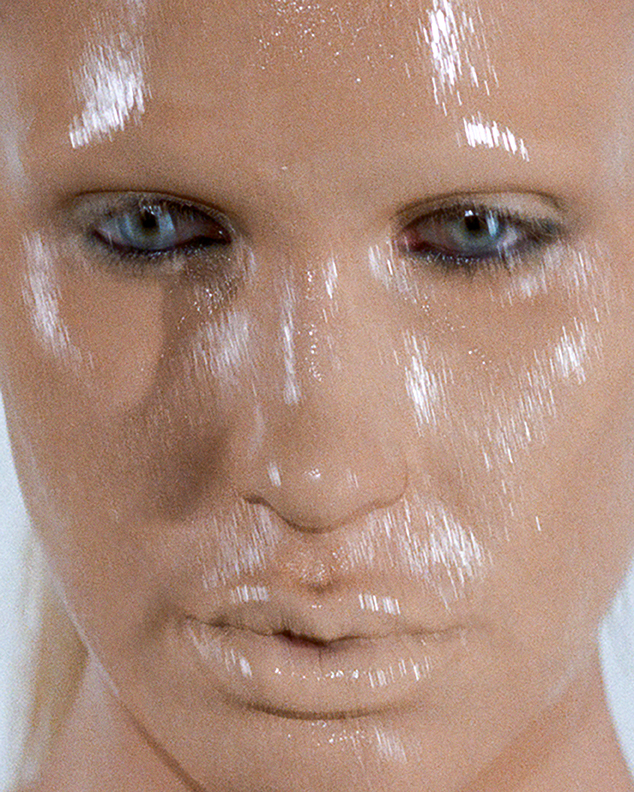
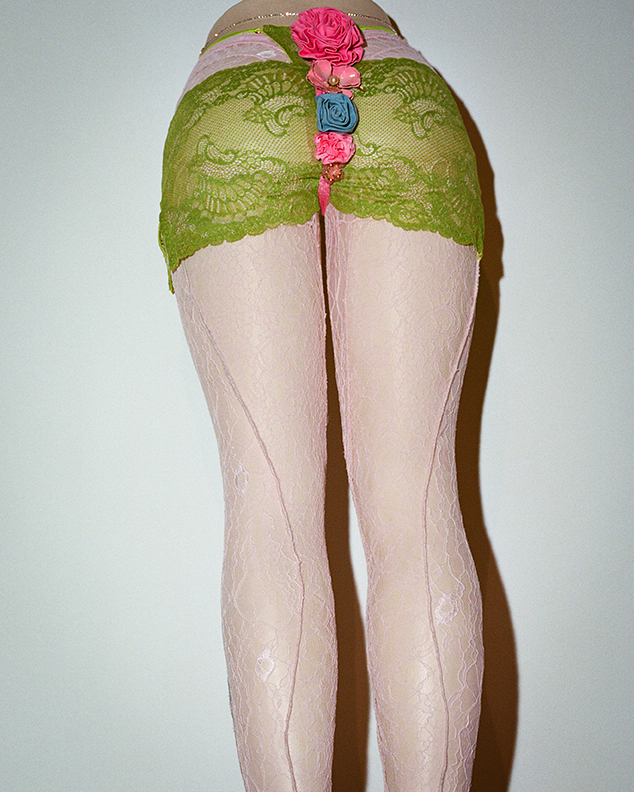
Tights MUGLER Skirt ANNA DAMINOVA Necklace (worn as underwear) SARAH APHRODITE Waist chain STYLIST’S OWN
SD:
What made you want to record in LA, after doing Phoenix in Spain and working on your own in New York for so long?
EE:
I had been really resistant to ever working with strangers. Everything that’s happened up to this point has been really organic—not that it isn’t organic when you reach out to somebody, but I kind of have always maintained the ethos of, like, ‘don’t attack, attract.’ Things will come to you if they’re meant to happen. Don’t ask for things, just do your thing. And then opportunities will open up to you accordingly. I think that’s how I’ve operated most of the time.
But then when COVID was subsiding, all of a sudden I realised, ‘Oh my God, I have so many more fans.’ It was just way more busy. I was modelling and Phoenix and Trinity [were] permeating and I suddenly felt pulled limb from limb. I was adapting to a much crazier schedule and travelling. It was exciting, it was really great, but I wasn’t able to just sit around and write music the way that I used to.
I think my managers kind of took the reins—I kept being like, ‘I’ll just write when I can. I’ll play when I can.’ And I did little spurts here and there. But eventually, I think they realised they needed to just make a really hard schedule, and pull me out of my comfort zone. Because when I would get home from all these modelling trips and tours and stuff, I’d be exhausted. I would just need to rest.
Also, I was kind of entertaining the idea of a new sound, and I didn’t have friends immediately at my fingertips who could necessarily achieve that. So [Eartheater’s manager and Cascine founder] Jeff [Bratton] reached out to a bunch of different producers in LA and scheduled this recording period for me. I’ve never done anything like that before—going to strange studios with new people, sitting down and spending days with them. But it was incredible, and it worked out so well.
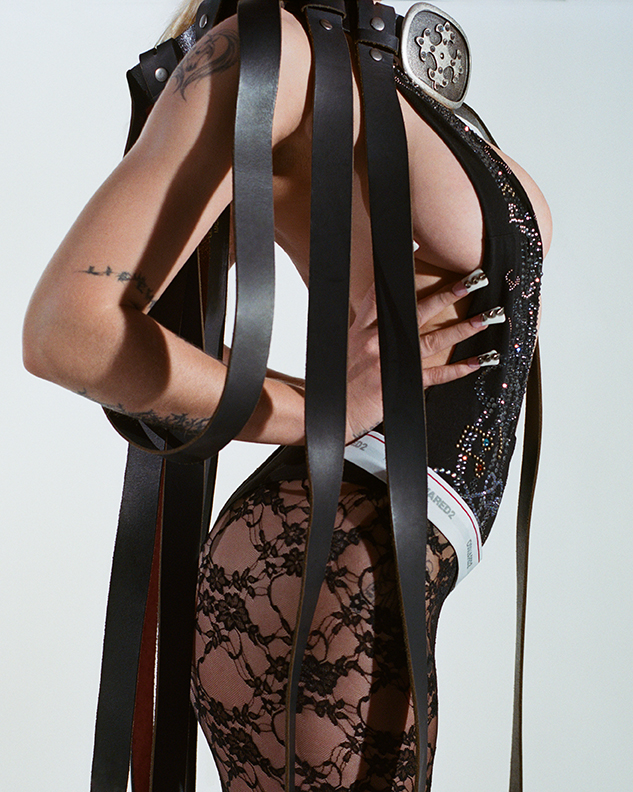
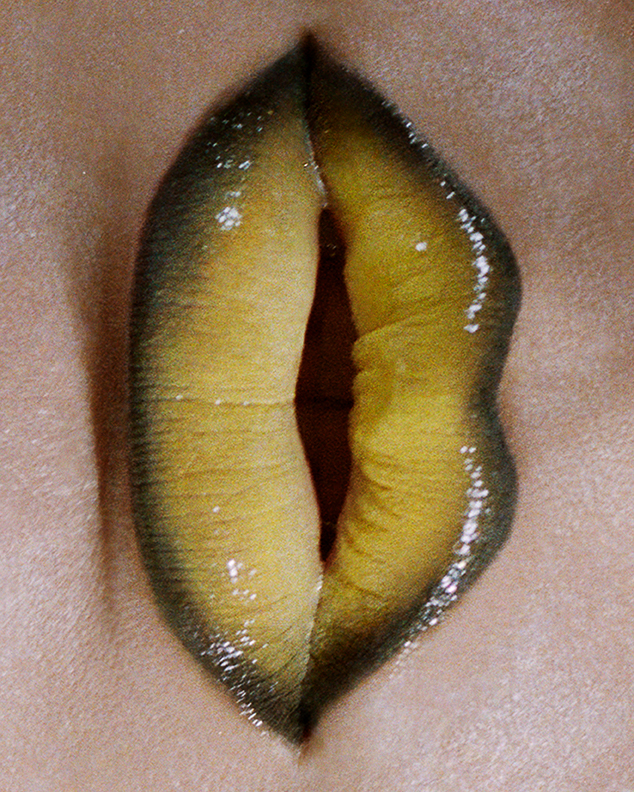
SD:
Where do you think this kind of drive to build out a new sound started?
EE:
Well, I can’t really talk about it because the sound that I set out to make is actually for the songs on [Powders follow-up] Aftermath. And weirdly, these songs on Powders were the ones that sort of just came out, off the cuff, without an idea in mind. They were just emotional little bursts that popped out.
SD:
They’re sort of interconnected, right? How do you see those albums complementing one another?
EE:
When I went to LA, I set out to make an album and I had a sound in mind, and I can’t divulge what that sound is because I’m still working on that album. What happened in the interim is that all these other songs started happening. And that’s what Powders became. So it’s like the deposit of this big mother record, which is Aftermath, and then Powders is maybe, like, the bits and pieces of powder that come off when you’re making a sculpture. All the debris that falls. It’s so unplanned, it just is what it is.
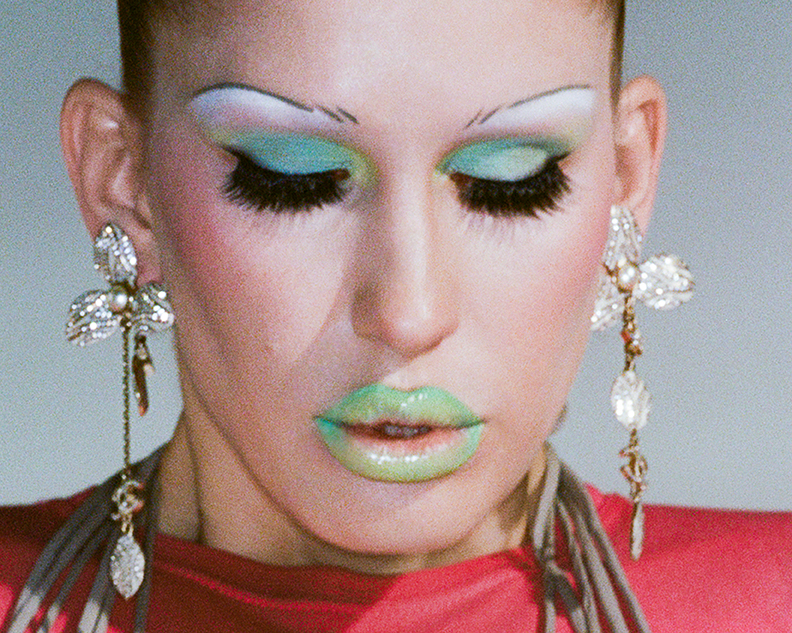
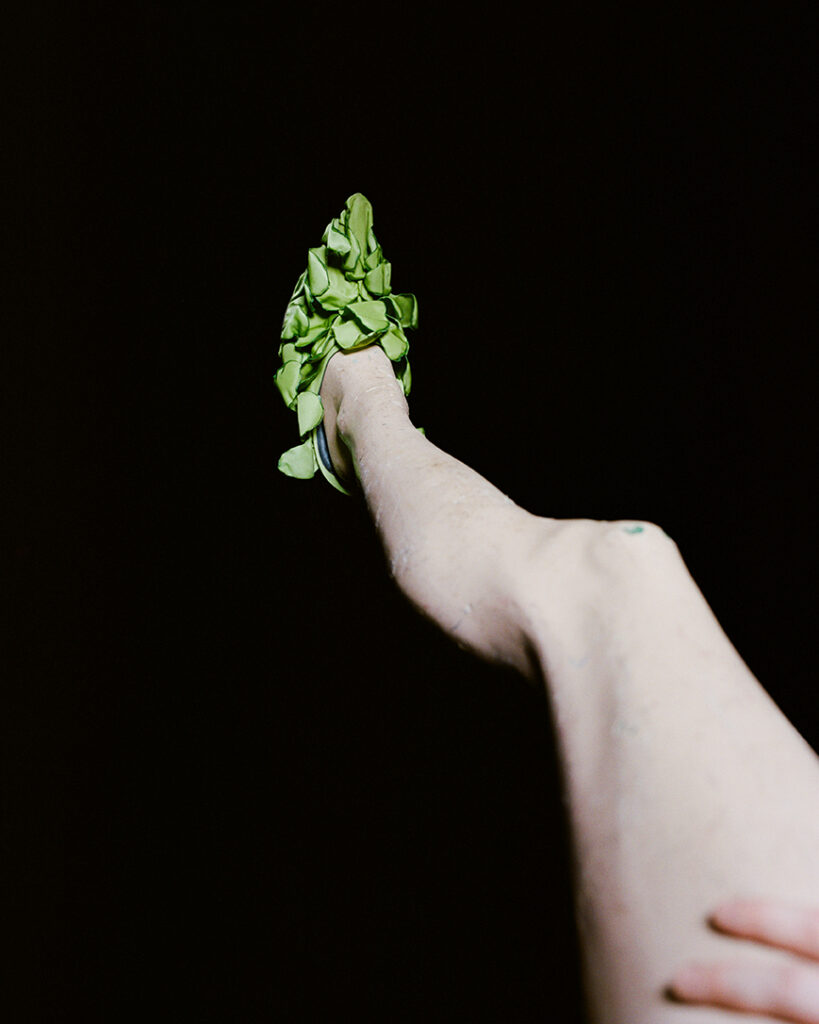
T-shirt STYLIST’S OWN Bra ANNA DAMONIVA Earrings CHANEL Shoes ACNE STUDIOS
SD:
What was it, do you think, about that environment or your state of mind at that time, that led to those bursts of creativity?
EE:
I was pushing myself with the Aftermath material, and then I would sort of relax into it. It always happens to me—once the muscle is conditioned and the cogs are greased, all these beautiful things happen that you didn’t plan for, because the energy is just moving around. Powders really just picked me. The songs just sort of infiltrated, with that magical feeling when a song just wells up. And then, of course, I’ll go and edit, make it more clever, more interesting and more cohesive altogether. You invite the channel, but you kind of have to work to open the channel. And then once that opens, you know, take advantage.
SD:
I read an interview where you basically said you did the Spain residency when you recorded Phoenix because it was the only way you’d be able to work in a world class studio. How did it feel to work on Powders in a big studio? Was it the first time since then that you felt you had the luxury of resources and time?
EE:
I guess I had these studios because of an advance that I have to pay back. Phoenix was definitely a luxury, because that was a gift. I didn’t have to pay for that. That was a residency, which was magical. But this is all definitely coming out of my pocket, which is a little bit scary. I’ve never run up such a crazy bill on an album before, so it’s a bit terrifying.
But yeah, this is the first time since then that I’ve… I’ve been in other studios since then, but this is just in a particular way—it’s with a bunch of heads that were handpicked for me, like someone else deciding, ‘Oh, this is the person for you to meet.’ And kind of trusting in that, I haven’t really done that [before]. That was cool.
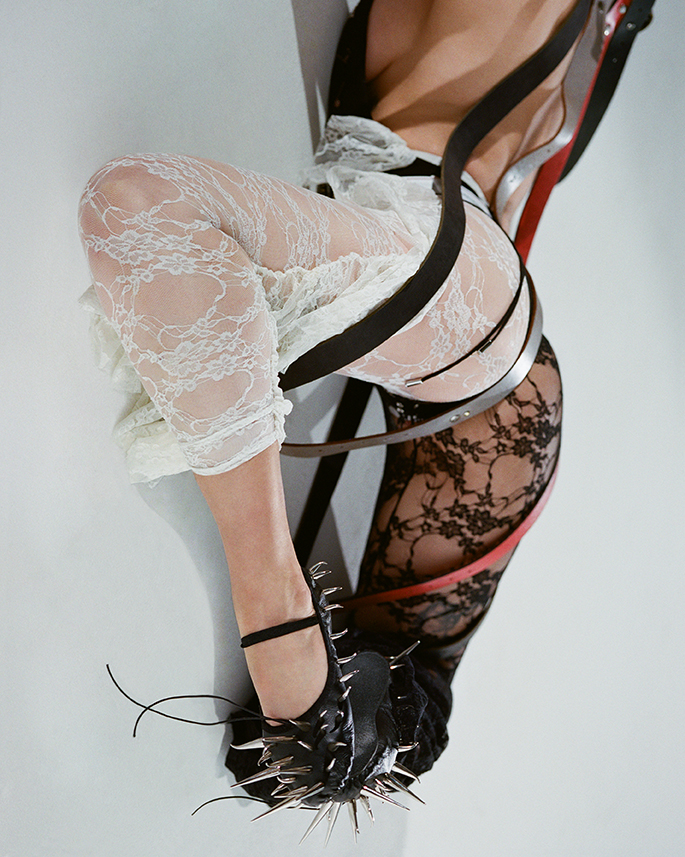
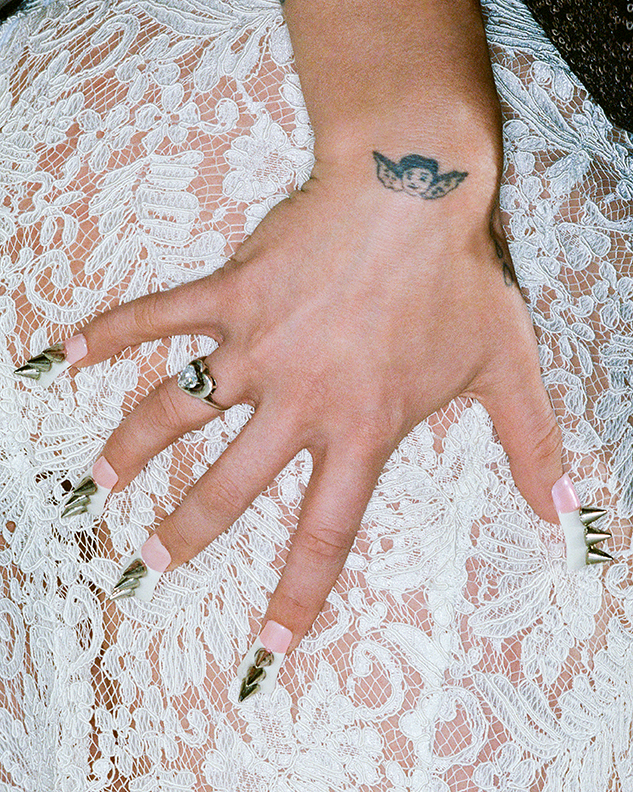
Belt-top and shoes ASLAN Leotard DSQUARED2 Tights SARAH APHRODITE Skirt MICHELLE DEL RIO Ring EARTHEATER’S OWN
SD:
‘Salt of the Earth (H2ome)’ derives from a song you worked on years ago with your family. How often do you pull old songs from your archive for newer projects?
EE:
Every album has at least one or two stems, or archived snippets, that I ended up incorporating. For example with ‘Pure Smile Snake Venom,’ I got the idea seven years ago when I made a song called ‘The Origin of The Smile.’ ‘The Origin of the Smile’ is a lost song on some dusty hard drive somewhere. But the idea finally manifested years later.
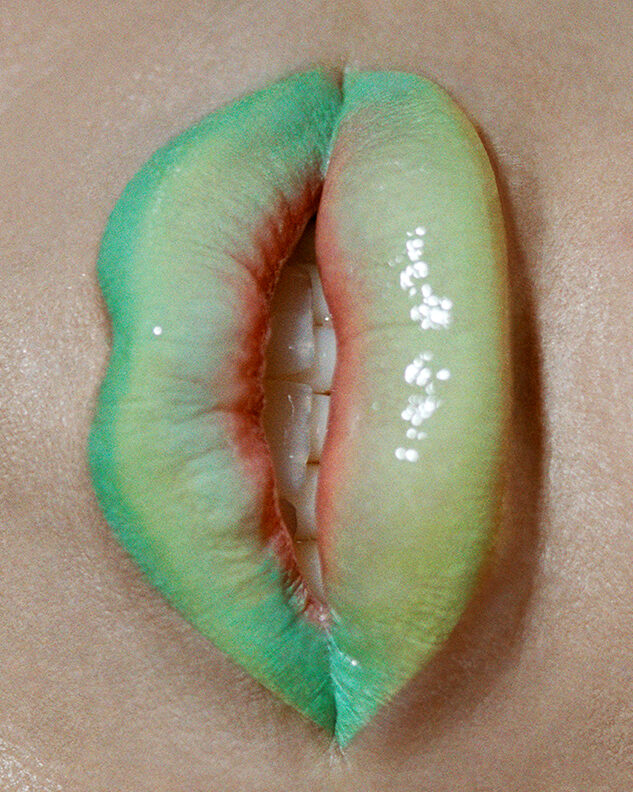
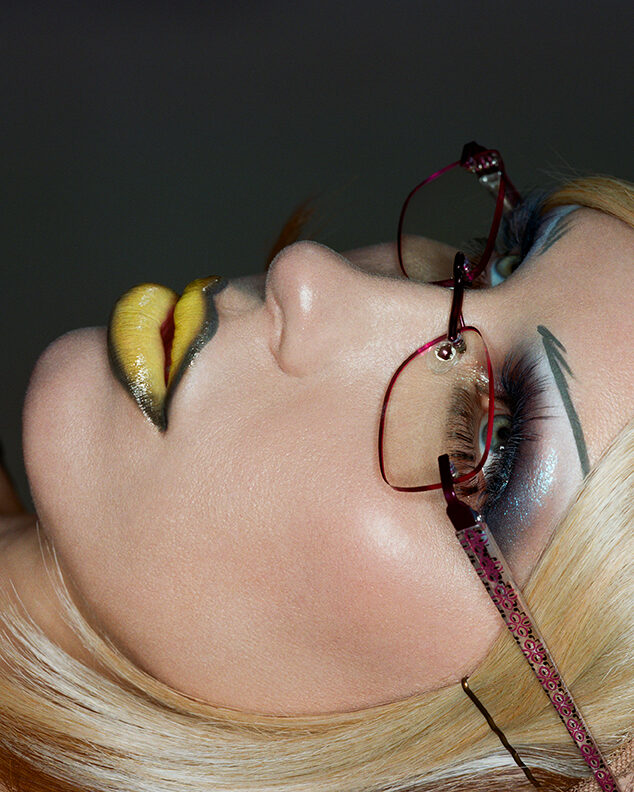
Glasses STYLIST’S OWN
SD:
‘Clean Break’ represents a fairly new writing style for you—it sounds like it’s a stream of consciousness, and mentions a lot of specifics of your life, or a moment in your life. Where did that song stem from? Why did you want to experiment with such a distinct change in your lyricism?
EE:
I was literally recounting what happened in a two-day span of time. I had just gotten back from tour: I had lost my iPhone the very last day when travelling home. My suitcase was stolen the day I departed for tour, with my laptop inside. When I got home, my backup laptop wouldn’t turn on. I had no source of communication with anyone or any way to record music. I was in a crunch with editing one of Lolahol’s videos, so I walked to my closest friend’s house, Nina, who does my makeup, and had to sing to her window for her to let me in. I managed to contact Moshpit to come over to Nina’s and edit all night. I used Nina’s computer to invite Lola to bring the footage that we edited. Moshpit left and I was alone with Lola. She was going through a breakup and was in an emotional state where I was comforting her and I decided to make some tea. I poured the boiling water into a vase because there were no glasses and it broke apart from the bottom in what I thought was a perfect circle.
I looked over to Lola and I said ‘It’s a clean break!’ As I was making tea again, I was still moved by this massive vase that just broke in such a perfect clean way. I could see in the corner of my eye, Lola started crawling around on the floor on all-fours. When you’re going through a breakup, shit happens! Then all of a sudden she ran outside to her Uber. I looked at the circle mirror table there and saw that it wasn’t a clean break–a perfect ribbon of glass was scattered across the floor. I noticed that even though she was emotional, Lola was on the ground collecting the shards. I use the word ‘concerto’ in the song—when a soloist performs against the orchestra. I realised how in my own world I was for not realising it wasn’t a clean break. That’s when the whole song came to me and I had no way to record it. So I played it on my acoustic guitar for days straight until I got a new computer and phone so I wouldn’t forget it.
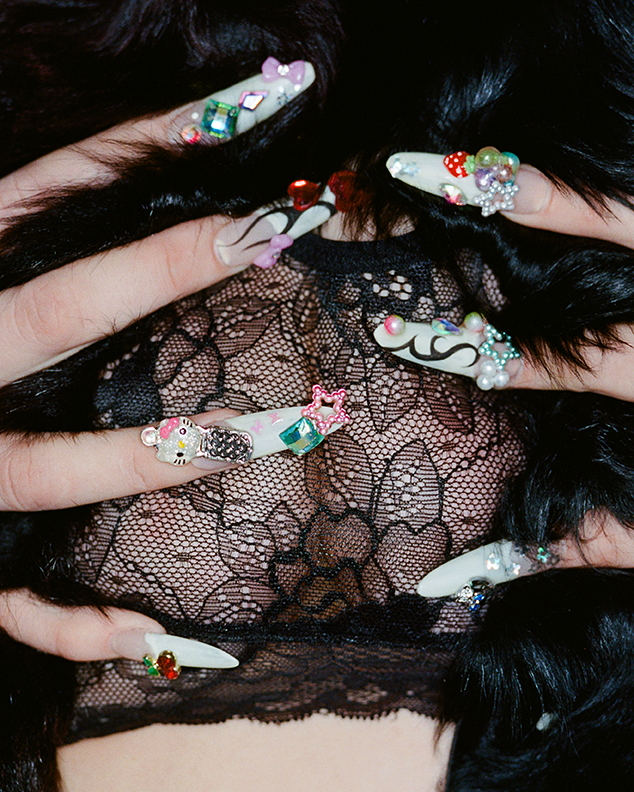
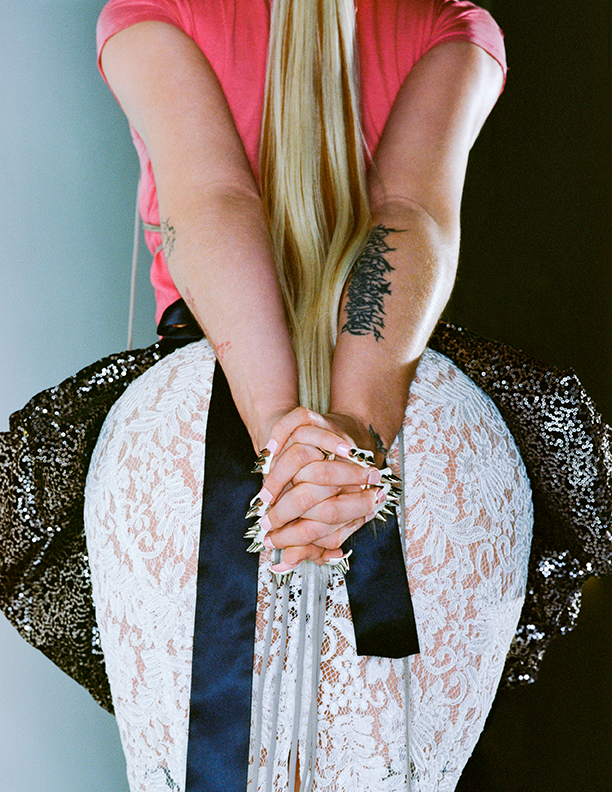
Vest ECKHAUS LATTA Bra CUCCIA T-shirt STYLIST’S OWN Bra ANNA DAMINOVA Skirt MICHELLE DEL RIO Underwear CUCCIA
SD:
What made you want to cover ‘Chop Suey’ on this record? What’s your history with System of a Down?
EE:
I was in my sophomore year of high school when my brother downloaded System of a Down’s full discography via Napster. I latched onto ‘Chop Suey’ because of the lyricism and guitar work and began singing harmonies to it.
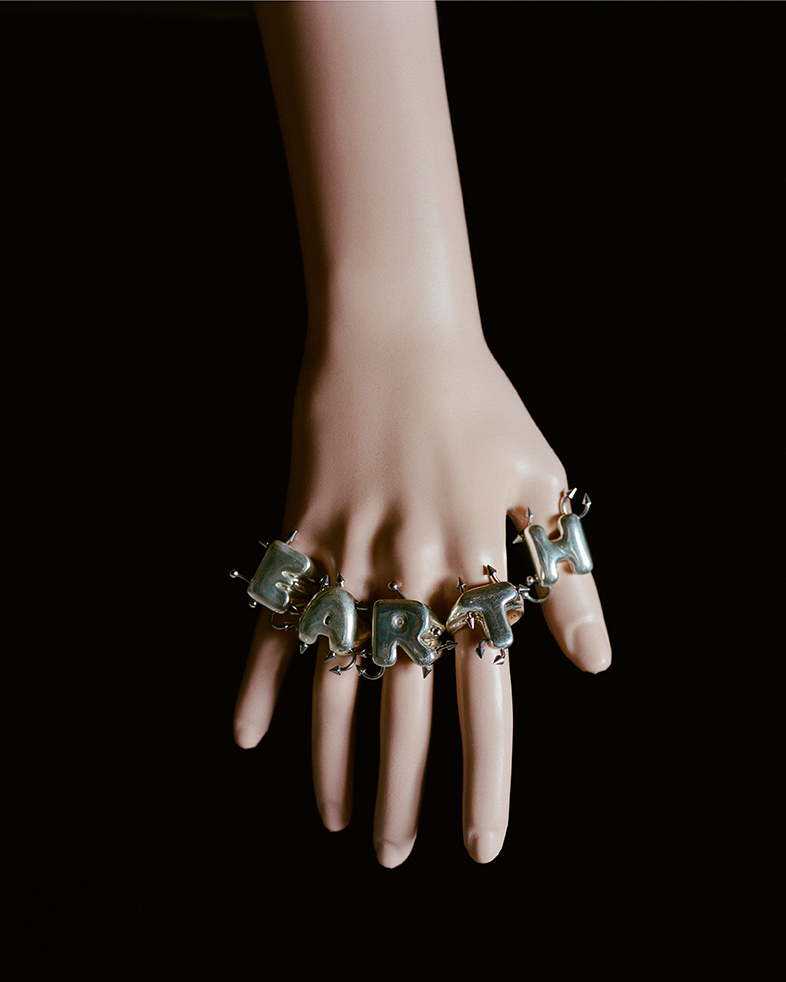
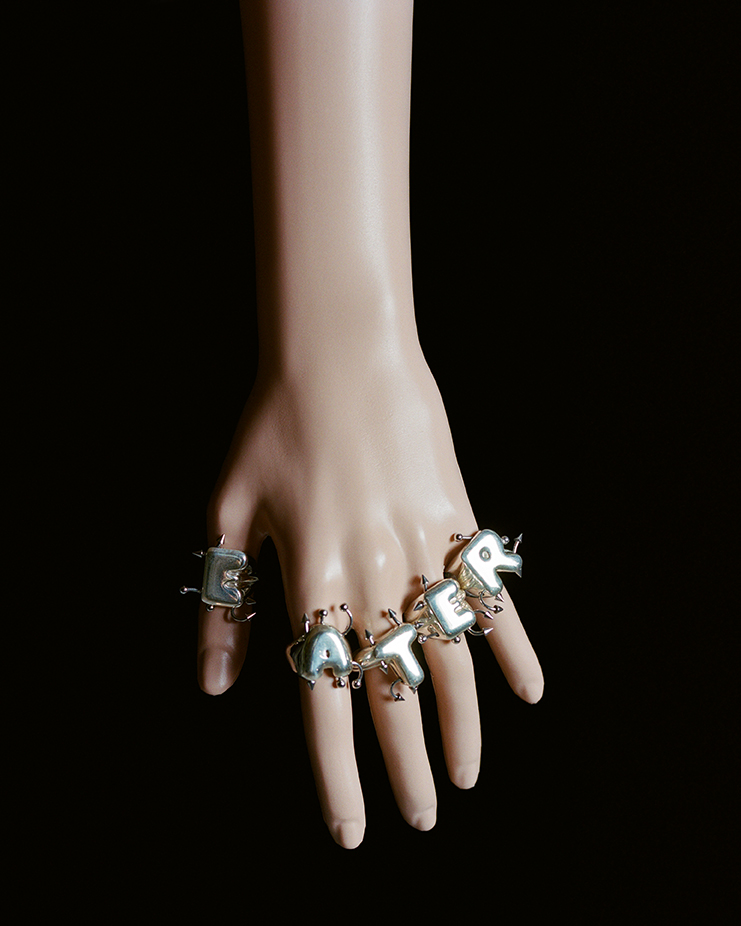
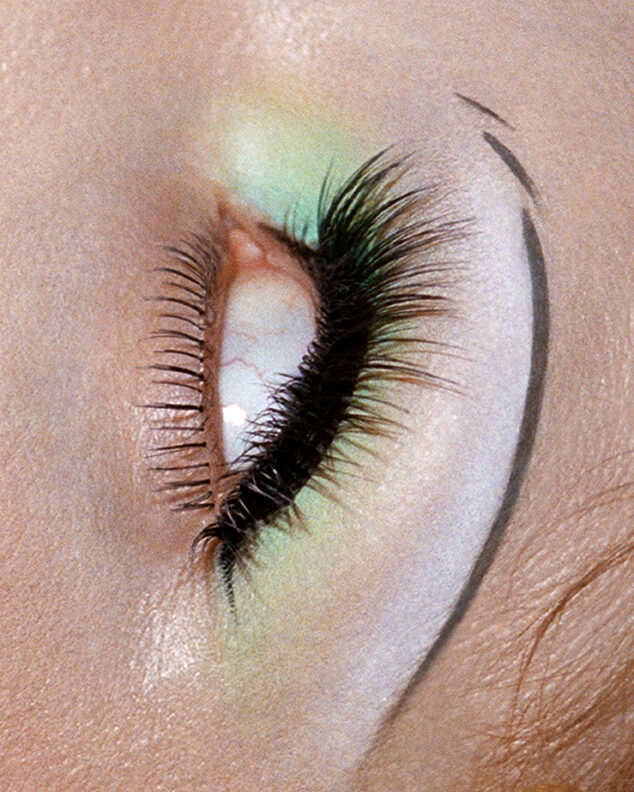
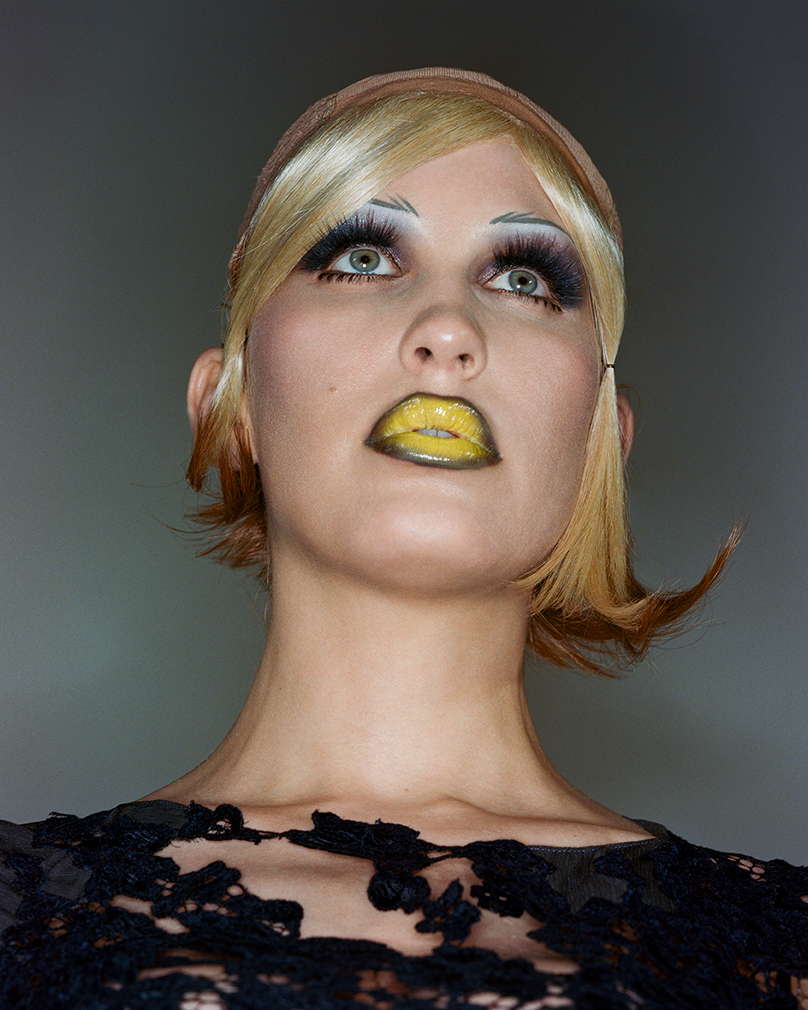
Rings ASLAN Dress ACNE STUDIOS
SD:
After spending so long working other jobs to be able to support your art, how has your approach to music changed since you’ve had more money—or more access to money—to do things? Does modelling feel the same as a bar job?
EE:
That’s actually a really good question. I feel like, because I knew how to live quite beautifully on very little, it’s kind of overwhelming to have a lot of resources. But I feel like I ended up being quite brash with it just because I’m like, ‘I need to take advantage of [these resources].’ But I feel like I kind of miss… I’ve noticed that when people know you have money for a project, all the clever ideas that people might have kind of go out the window, because it’s like, ‘Oh, let’s just pay for this. So just pay for that.’ But then before you know it, the whole budget is spent on just the basics. And then it’s like ‘Okay, well we’re back to square one, we’re still just trying to do a clever little idea.’ I don’t know. The whole thing, the money—I like to be able to pay people, that’s what is great, but I also feel like… I don’t know, I’m really not being articulate today. I don’t know what the hell is up—something about you, like the last interview! [Note: Eartheater and I previously spoke for a story in The Face, during which she felt like she couldn’t collect her thoughts properly.]
SD:
It’s okay, introspection will do that to you.
EE:
I’m like, why can’t I express myself today? Can we both sage our rooms that we’re in?
SD:
I wish I had some, this room needs it.
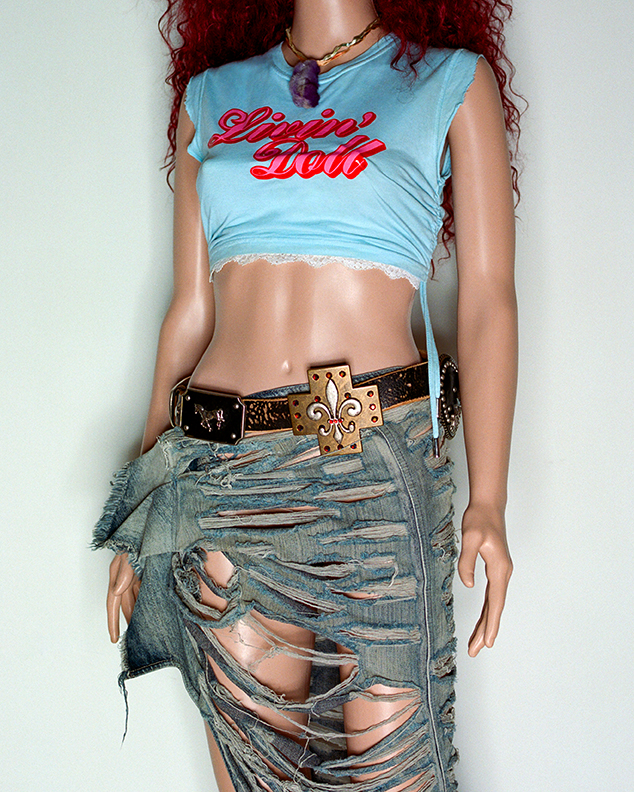
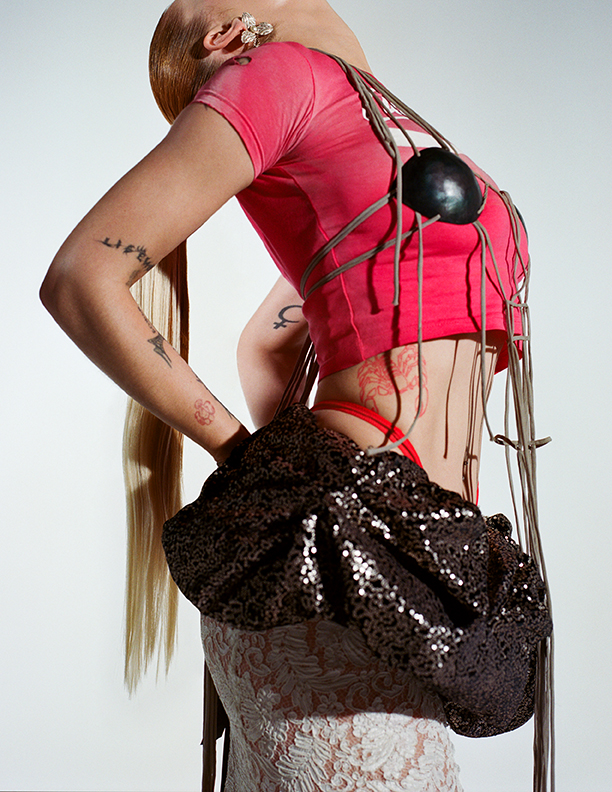
Left: T-shirt DSQUARED2 Skirt RICK OWENS Belt ASLAN Necklace STYLIST’S OWN
Right: T-shirt STYLIST’S OWN VINTAGE Bra ANNA DAMINOVA Skirt MICHELLE DEL RIO Underwear CUCCIA Earrings CHANEL
EE:
To be honest, I feel like I’m still just investing—I’ve always invested everything I have into the art and the music, and I feel like I’m still doing that. Life is still the same. Yes, there are way more resources, but nothing really feels particularly different. Like, I can record, I can pay for all these studios, but I don’t know if it feels that different. It’s also not like it’s that much more money. Obviously it’s a blessing. But one thing I am proud of—and I’ve noticed now that I have a label and I’m working with other artists and stuff—is that I’ve been able to do beautiful things with nothing. Like, just use your iPhone, find the magic in the moment, make something that is stunning [while] not having to rely on a budget. I feel like a budget can kind of complicate things. Sometimes, you know, you spend all this money on this huge crane. But then you find yourself having to perform for the crane—meanwhile, isn’t the camera supposed to follow you? I don’t know.
SD:
For sure.
EE:
It just is what it is, I guess. I don’t want to sound ungrateful, but I also feel like I’m living pretty humbly, because I literally just put all this money into the art, paying people, getting shit done, but now I am in crazy debt. So there’s that. Hopefully people buy this shit.
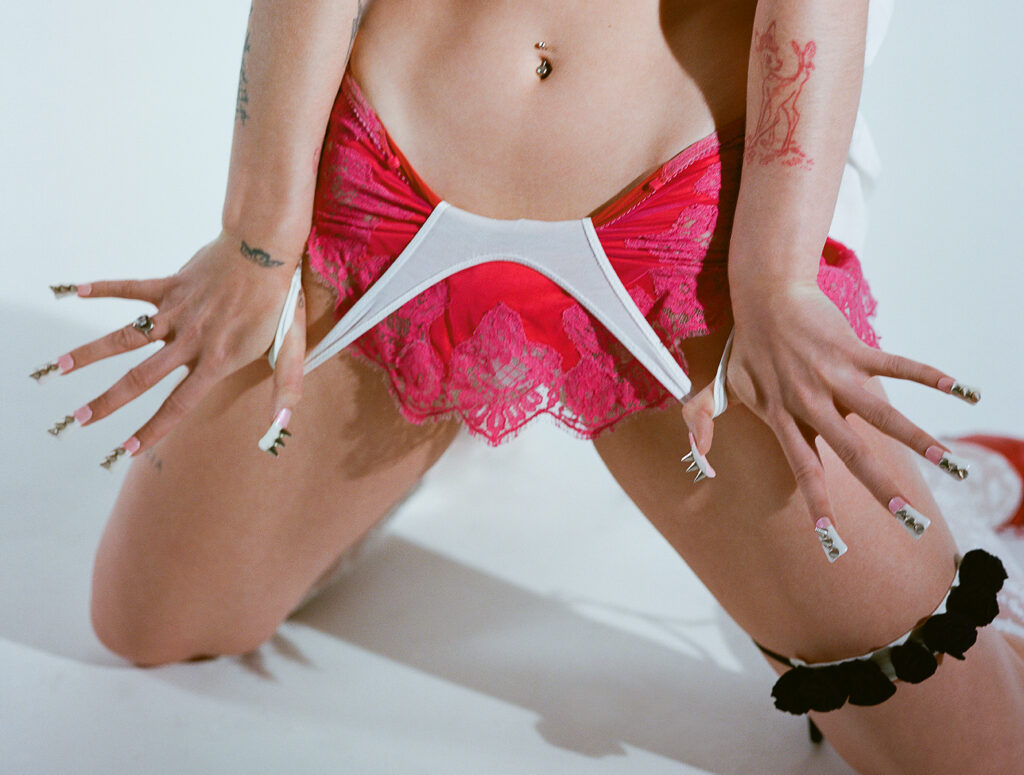
Skirt DSQUARED2 Underwear CUCCIA Ring EARTHEATER’S OWN
Talent Eartheater
Photography Stevie & Mada
Styling Alison Marie Isbell
Hair Eric Williams at Streeters
Make-up Jezz Hill at CLM
Nails Juan Alvear
Production Assistant Meghan Deretchin
Photography Assistant Mace Vannoni
Styling Assistant Hannah Shevlin
